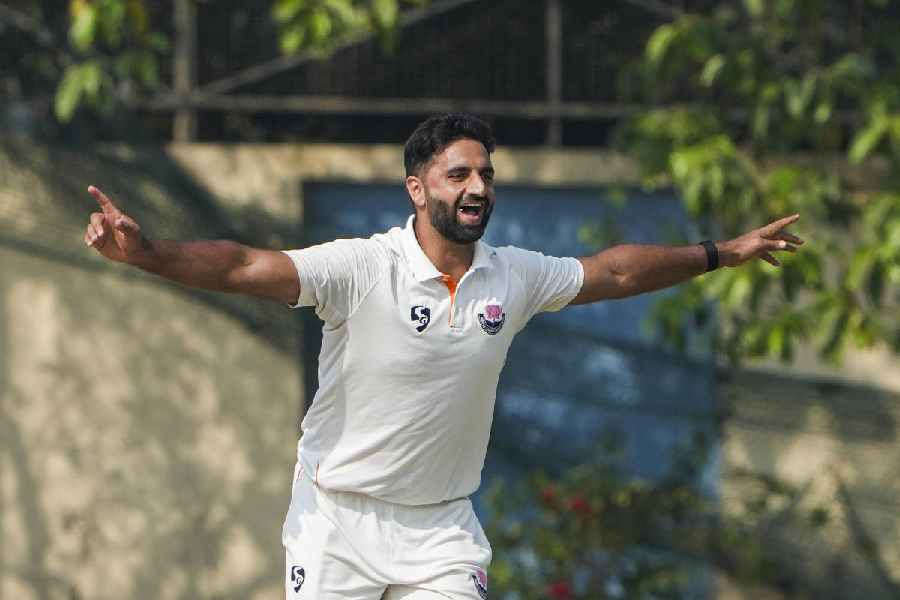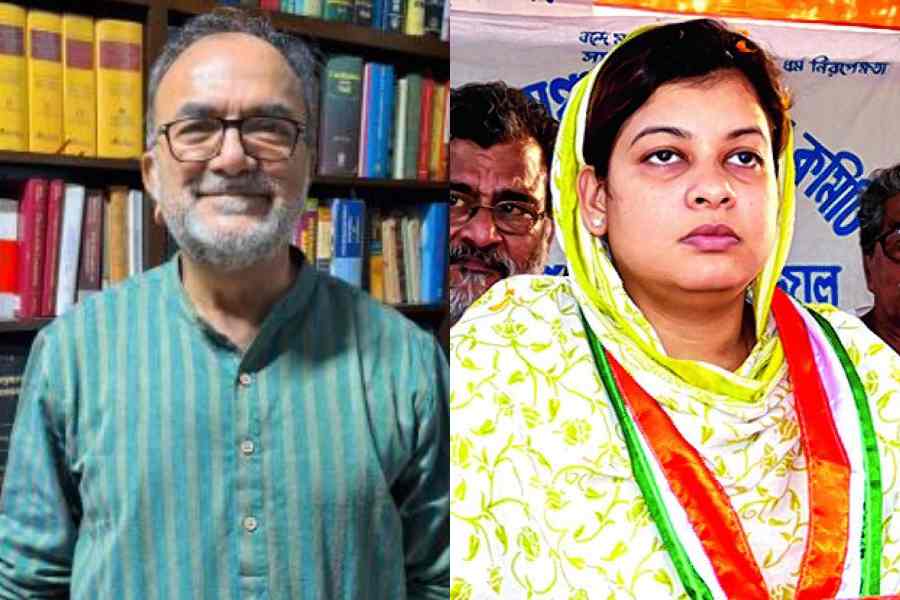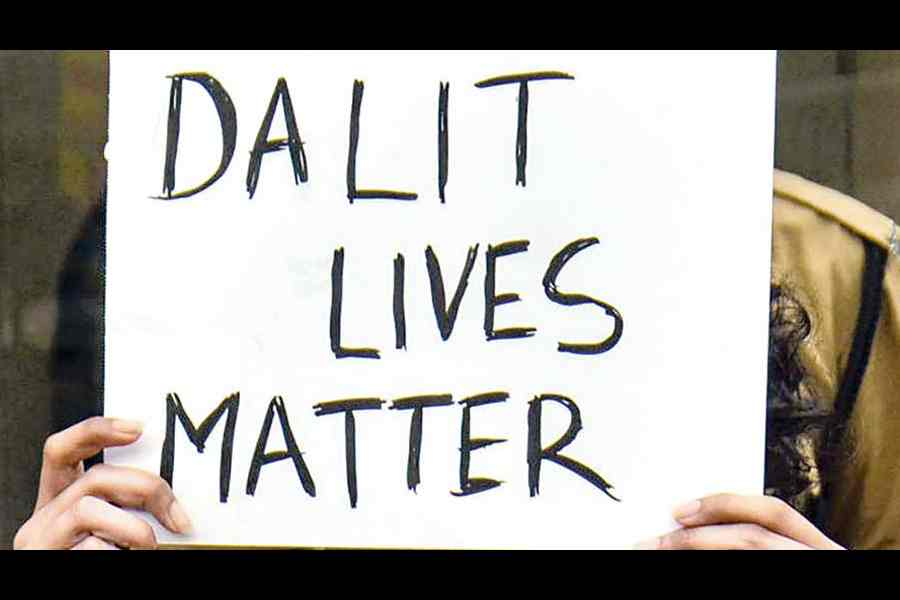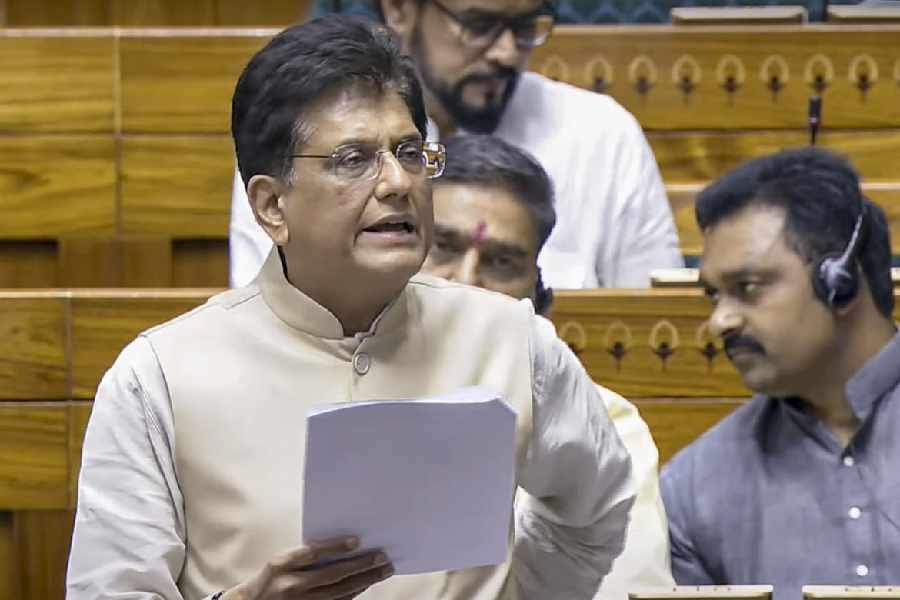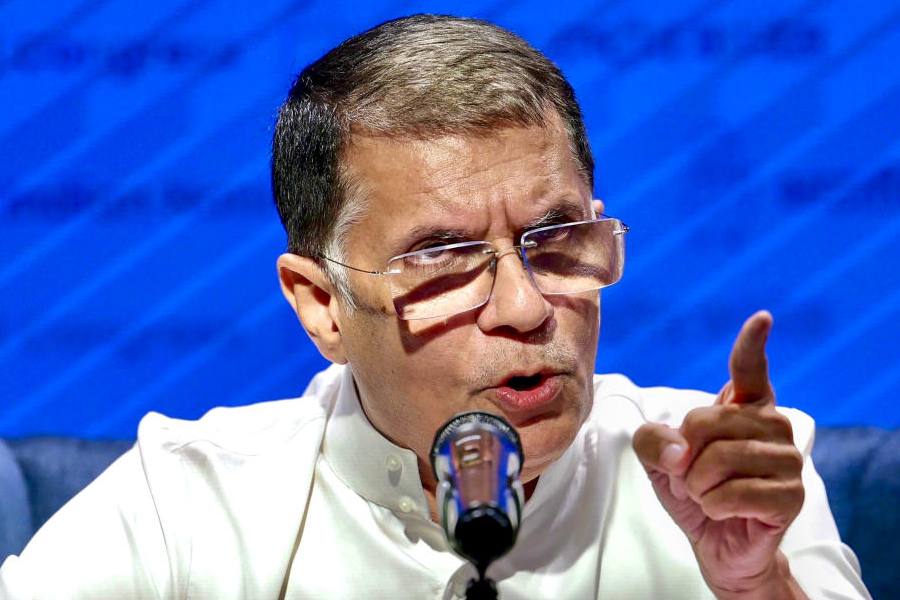|
|
Suad Amiry, a Palestinian architect, writer and activist, was in India recently to launch the English edition of her book, Menopausal Palestine: Women at the Edge. As I listened to her speak about her life and work, I heard that old Brechtian question and answer in my head. “And will there be singing in the dark times? Yes, there will be singing in the dark times.” Amiry brings bad news, but she doesn’t just sing despite the news. She laughs out loud. Singing is good, but laughing is better. Laughter in dark times undermines their power over us. Laughing mockingly at the dark times is one way to make sure the human spirit is never defeated.
Amiry’s news is about home. This is a home which has been, since 1948, subject to ruthless grabbing, or destruction, or shrinkage, or division by checkpoints and gun-toting soldiers, barbed wire and walls. News from Palestine seems, inevitably, bad news. You know that even before Amiry speaks. Still there are revelations about the complexities involved — in understanding, for instance, the qualitative changes on the ground that made it possible for Hamas to win the 2006 elections. There are also the implications, not just for Palestine and its neighbourhood, but for all of us. Will the secularism and pluralism that the PLO generation took as a given, and on which they built their hopes for Palestine, now be replaced? And with the sort of “local nationalism” or “global religious fundamentalism” we have been meeting in assorted guises in different parts of the world? What Amiry tells us makes us understand that she is not just talking about their bad news, but ours as well.
The public sphere does not live on its own. It gives meaning to, and becomes meaningful in turn, because of the personal sphere — the daily needs and aspirations of real people, their chasing normalcy, and their grief when normalcy eludes them. This intertwining of public and personal dark times is evident at the very beginning of Amiry’s book on what she calls “menopausal Palestine”. In place of an epigraph, Amiry strings together three milestones of loved ones, all members of a refugee generation. When her father died in 1978, Amiry was troubled that he did not live long enough to return to his house in Jaffa, in “1948 Palestine”. In 2005, when her mother died, Amiry was saddened by the fact that her mother did not live long enough to visit her daughter’s home in Ramallah, in “1967 Palestine”. The two milestones are linked not only by Amiry’s personal grief but by a more widely shared grief — the loss of Palestine, the inability to go home in time. Perhaps the third milestone is the worst of all: when a beloved friend dies in 2006, Amiry’s “additional” grief expresses itself differently. She is actually happy that he did not live long enough to see what was still to happen, not only to Palestine, but to Iraq, Lebanon, Syria and other neighbouring countries.
Amiry’s book continues to intertwine, as experienced in real life, the public and private, the personal and political. Several of her women friends talk about their childhood memories, their first loves and rebellions, all the accidents of personal and political encounters that have made them who they are. Amiry describes these women friends as menopausal, even the young ones. As in the absence of hormones in a state of menopause, it is a larger “hormonal imbalance” that defines their identities and brings them together. Regardless of age, “it was Palestine or its absence which formed the centrifugal force around which our separate individual lives revolved… slowly interlinked at different times, in different places… to ultimately intertwine and intermingle in Ramallah”.
Their narratives recount their journey over the decades in search of “virtual Palestine”. One woman describes the great love between herself and her grandmother. Another wryly recalls the games other children devised around her “huge ass”, but she also speaks of her passion for music and her interest in different kinds of madness. A third compares the peasant life her father stood for and the sophisticated but restrictive etiquette of her mother’s city life. The women’s different routes to Ramallah cover this familiar ground of growing up, discovering what it is to be a woman, getting politicized. But even from the years of childhood, these “normal” journeys bear wounds and scars of what should not be normal experience but has become so.
There is the girl who sees her father cry for the first time — in 1967. There is also the girl who grows up the child of a martyr; but being a martyr’s child means she has no father. There is the sister who describes seeing her brother with bullets “sprayed into his tummy”. There is the girl who sets out for South Lebanon to join the fidayeen and get military training. (Her mother, who catches up with her before she has gone far, is both angry and proud.) There are the children who play at Israeli army and Palestinian freedom fighters with a deadly passion. And most heartbreakingly, there is the grown woman who has to deal with “security logistics” at Allenby Bridge so she can cross over into Nablus — where her mother has been shot dead in her own home by Israeli soldiers.
The dark times are only too evident. And the laughter? It’s difficult to imagine a sense of humour remaining intact as narratives cover such painful ground. But that’s exactly what Amiry and her friends manage through their wacky and irreverent take on the daily anxieties, fears and harassment that make up life in times of occupation. Her Delhi audience, in fact, could see Amiry’s own indomitable spirit glow as she described a few of her own quirky little acts of resistance. She told us of her “staring down” an Israeli guard at a checkpoint though he repeatedly asked her to “stop looking at him”. She told us of her reply, “I was dancing”, when asked at Tel Aviv airport what she was doing in London. Then there was the dark humour of the time her dog got a passport to Jerusalem. At the relevant checkpoint, Amiry insisted she was taking her dog — who had permission — into Jerusalem since it can’t drive.
Amiry ends her book on a teasing note that warns, “Experts say: Menopause is a wake-up call for a new phase in your life. And I say: So is Hamas. Two wake-up calls may be more than most people can handle.” But having heard and read Amiry, I suspect what lies under this brittle warning is a real little piece of hope. In her talk she recalled we are talking about a place called the “Holy Land”. Maybe, she said, this holy land will one day see its people finally go home. Even if home means two states, even if home is one-third the size of what it was, and even if many people have lost lives and loved ones on the way home to Palestine. Meanwhile, the only two things that keep those on the road going are humour and hope.






